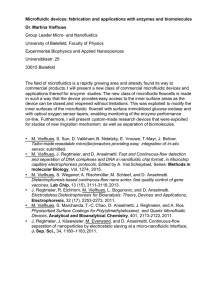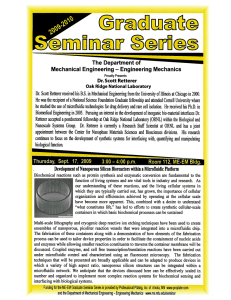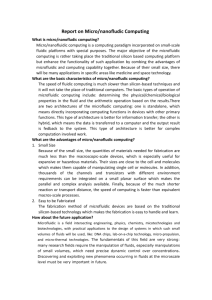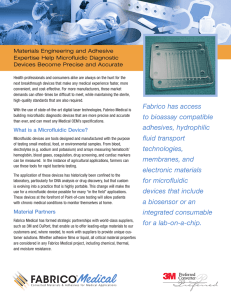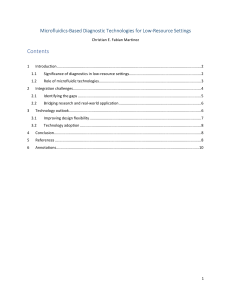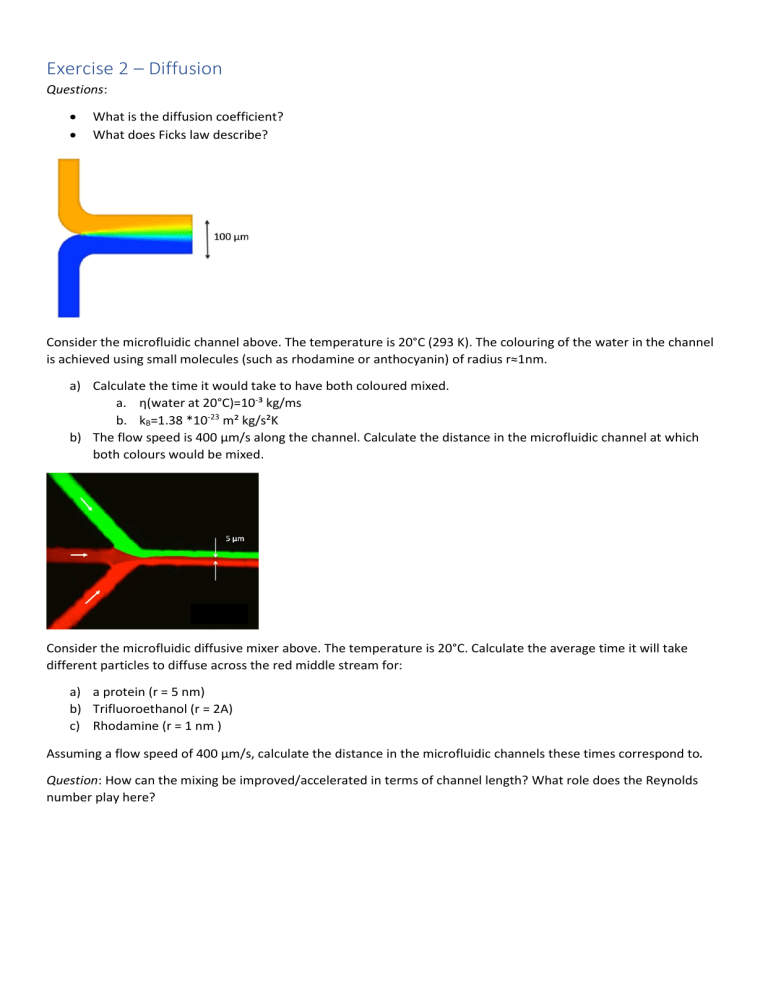
Exercise 2 – Diffusion Questions: • • What is the diffusion coefficient? What does Ficks law describe? Consider the microfluidic channel above. The temperature is 20°C (293 K). The colouring of the water in the channel is achieved using small molecules (such as rhodamine or anthocyanin) of radius r≈1nm. a) Calculate the time it would take to have both coloured mixed. a. η(water at 20°C)=10-³ kg/ms b. kB=1.38 *10-23 m² kg/s²K b) The flow speed is 400 μm/s along the channel. Calculate the distance in the microfluidic channel at which both colours would be mixed. Consider the microfluidic diffusive mixer above. The temperature is 20°C. Calculate the average time it will take different particles to diffuse across the red middle stream for: a) a protein (r = 5 nm) b) Trifluoroethanol (r = 2A) c) Rhodamine (r = 1 nm ) Assuming a flow speed of 400 μm/s, calculate the distance in the microfluidic channels these times correspond to. Question: How can the mixing be improved/accelerated in terms of channel length? What role does the Reynolds number play here?
